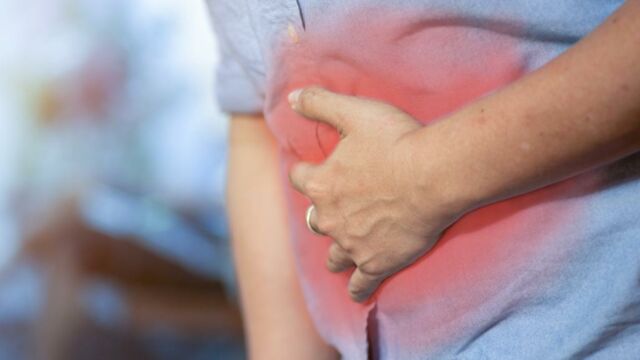The number of people diagnosed with bowel cancer is increasing. The disease's symptoms are most commonly seen in a person's bowel movements, but a less common indicator can be found in the stomach.
Discover our latest podcast
Bowel cancer, or colorectal cancer, is the fourth most prevalent cancer in the UK and it affects the large bowel, which includes the colon and rectum. Bowel cancer's specific cause is uncertain but several factors may make you more prone to get it—including your age, genetics, and lifestyle choices.
Bowel cancer symptoms
According to BMI Healthcare, pain or lumps in your stomach can indicate a dangerous condition. Some tumours can become large enough to be felt from the outside. Bowel Cancer UK states:
You may have pain or a lump in your stomach area (abdomen) or back passage. See your GP if these symptoms don’t go away or if they’re affecting how you sleep or eat.
If there is bleeding on the inside, it is usually undetectable. However, severe anaemia induced by blood loss can make a person feel weak and exhausted.
The intestine is a part of the digestive system that breaks down food and transports undigested waste to the rectum, where it is evacuated. Unsurprisingly, many symptoms concern the stomach and can manifest themselves when you go to the bathroom.
Risk factors
A risk factor is something that can enhance your cancer risk. The presence of one or more risk factors does not guarantee that you will develop bowel cancer. Some parts of our diet are unknown or ambiguous, but others clearly have a direct impact on colon cancer risk. The consumption of a lot of red and processed meat has been linked to an increased risk of colon cancer in numerous studies. UK cancer research reports,
It is estimated that around 13 out of 100 bowel cancer cases (around 13%) in the UK are linked to eating these meats.
Other bowel cancer symptoms include:
- A persistent alteration in your bowel habits, such as diarrhoea or constipation, or in the consistency of your faeces
- Blood in your faeces or rectal bleeding
- Consistent stomach pain, such as cramps, gas, or bloating
- Feeling as if your bowels aren't totally empty















